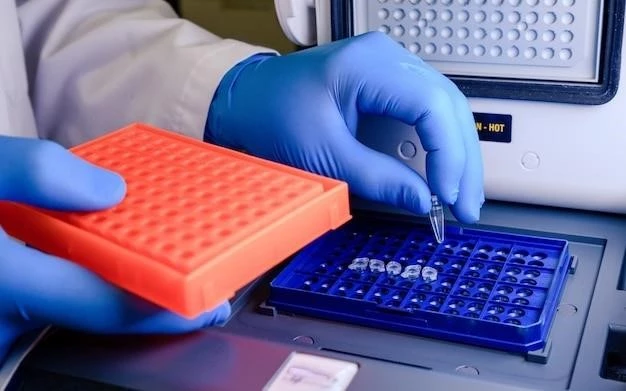Introduction to N-Acetylglutamate Synthase Deficiency
N-Acetylglutamate synthase deficiency is an extremely rare autosomal recessive metabolic disorder affecting the urea cycle, leading to episodes of hyperammonemia. It can cause significant morbidity and mortality.
Overview of N-Acetylglutamate Synthase Deficiency
N-Acetylglutamate synthase deficiency is a rare autosomal recessive disorder impacting the urea cycle. It can lead to life-threatening hyperammonemia and neurological consequences due to ammonia accumulation. The disease onset varies from neonatal to later stages of life, posing diagnostic and management challenges.
Clinical Presentation and Symptoms
Patients with N-Acetylglutamate synthase deficiency may present with confusion, dizziness, and other neurological symptoms due to elevated ammonia levels in the blood.
Signs and Symptoms of N-Acetylglutamate Synthase Deficiency
Signs and symptoms of N-Acetylglutamate Synthase Deficiency may include confusion, dizziness, and neurological manifestations due to elevated ammonia levels, impacting various age groups from neonates to adults.
Causes and Mechanism
Due to the deficiency of N-Acetylglutamate synthase, a critical enzyme in the urea cycle, individuals experience the toxic accumulation of ammonia in their bodies, leading to severe neurological consequences.
Genetic Basis of N-Acetylglutamate Synthase Deficiency
N-Acetylglutamate Synthase Deficiency is an autosomal recessive disorder caused by mutations in the NAGS gene, leading to impaired production of the N-Acetylglutamate synthase enzyme crucial for the urea cycle.
Diagnosis and Testing
Diagnosis of N-Acetylglutamate synthase deficiency involves assessing symptoms like confusion and dizziness, along with specific tests measuring ammonia levels and genetic analysis.
Methods for Diagnosing N-Acetylglutamate Synthase Deficiency
Diagnosing N-Acetylglutamate Synthase Deficiency involves clinical assessment of symptoms like confusion and dizziness, serum ammonia level measurements, and genetic testing to identify mutations in the NAGS gene, aiding in a conclusive diagnosis.
Treatment Options
Treatment of N-Acetylglutamate synthase deficiency typically involves carbaglumic acid administration, an analog of N-acetylglutamate, along with dietary adjustments to manage hyperammonemia effectively.
Management Strategies for N-Acetylglutamate Synthase Deficiency
Management of N-Acetylglutamate synthase deficiency often includes the administration of carbaglumic acid, dietary modifications to control ammonia levels, and close monitoring of symptoms to prevent hyperammonemia-related complications, highlighting the importance of early detection and intervention.
Prognosis and Complications
Patients with N-Acetylglutamate synthase deficiency may face life-threatening complications due to high ammonia levels, requiring prompt treatment to improve outcomes and prevent long-term neurological consequences.
Potential Outcomes and Complications of N-Acetylglutamate Synthase Deficiency
N-Acetylglutamate Synthase Deficiency can lead to severe complications, including neurological sequelae, intellectual disability, and potential early mortality if untreated, highlighting the critical need for timely intervention and management to improve patient outcomes.
Research and Developments
Ongoing research on N-Acetylglutamate synthase deficiency focuses on understanding the genetic basis, developing innovative therapies, and investigating long-term management approaches to improve patient outcomes.
Latest Studies and Findings on N-Acetylglutamate Synthase Deficiency
Recent studies have focused on the genetic and metabolic aspects of N-Acetylglutamate Synthase Deficiency, aiming to develop targeted therapies and improve patient outcomes by gaining a deeper understanding of the underlying mechanisms involved in this rare disorder.

Lifestyle and Coping Strategies
Individuals with N-Acetylglutamate synthase deficiency can benefit from dietary modifications, close monitoring of ammonia levels, and psychological support to cope with the challenges associated with the condition.
Recommendations for Patients and Families Living with N-Acetylglutamate Synthase Deficiency
Patients and families managing N-Acetylglutamate synthase deficiency are advised to adhere to prescribed dietary modifications, follow the treatment plan rigorously, ensure regular medical follow-ups, and seek psychological support to cope with the challenges of the condition effectively.
Support Resources
Patients and families affected by N-Acetylglutamate synthase deficiency can seek support from genetic counselors, patient advocacy groups, and specialized medical centers offering expertise in managing rare metabolic disorders.
Organizations and Communities Providing Assistance for N-Acetylglutamate Synthase Deficiency
Patients and families impacted by N-Acetylglutamate synthase deficiency can find support from organizations such as the National Urea Cycle Disorders Foundation, Urea Cycle Disorders Consortium, and RareConnect, offering resources, information, and community connections to navigate the challenges associated with this rare metabolic disorder.

Impact on Quality of Life
N-Acetylglutamate synthase deficiency can lead to neurological complications affecting the quality of life, emphasizing the importance of proper management and care to minimize the impact of the condition.
Psychological and Social Effects of N-Acetylglutamate Synthase Deficiency
Individuals with N-Acetylglutamate synthase deficiency may experience psychological challenges and social impacts due to the chronic nature of the condition and its effects on daily functioning, emphasizing the need for comprehensive support services to address emotional well-being and social interactions effectively.
Future Directions in Treatment
Research on N-Acetylglutamate synthase deficiency focuses on developing targeted therapies, maximizing treatment efficacy, and enhancing patient outcomes through a multidisciplinary approach.
Emerging Therapies and Approaches for N-Acetylglutamate Synthase Deficiency
Ongoing research focuses on developing targeted therapies like gene therapy, enzyme replacement, and pharmacological interventions to address N-Acetylglutamate Synthase Deficiency, with the aim of providing more effective and personalized treatment options for affected individuals.
Global Perspective and Incidence
N-Acetylglutamate synthase deficiency, with an estimated incidence of less than one in 2,000,000 live births, is an extremely rare autosomal recessive metabolic disorder affecting the urea cycle. The disorder can lead to significant morbidity and mortality if left untreated.
Worldwide Prevalence and Distribution of N-Acetylglutamate Synthase Deficiency
N-Acetylglutamate Synthase Deficiency is an extremely rare autosomal recessive metabolic disorder with an estimated incidence of less than one in 2,000,000 live births globally. The disorder presents a challenge due to its rarity and potential severe complications if untreated. The clinical features can manifest from the neonatal period to later stages of life, emphasizing the need for increased awareness and early intervention to improve patient outcomes worldwide.
Conclusion
N-Acetylglutamate synthase deficiency, a rare autosomal recessive metabolic disorder affecting the urea cycle, presents challenges in diagnosis and management due to its rarity and potential severe complications if untreated. Early detection, targeted therapies, and ongoing research are crucial in improving outcomes and enhancing the quality of life for individuals and families affected by this condition.
Summary of Key Points Regarding N-Acetylglutamate Synthase Deficiency
N-Acetylglutamate synthase deficiency, an autosomal recessive metabolic disorder affecting the urea cycle, is extremely rare, presenting challenges in diagnosis and management. Research focuses on innovative therapies, urging early intervention and comprehensive care for improved patient outcomes worldwide.
